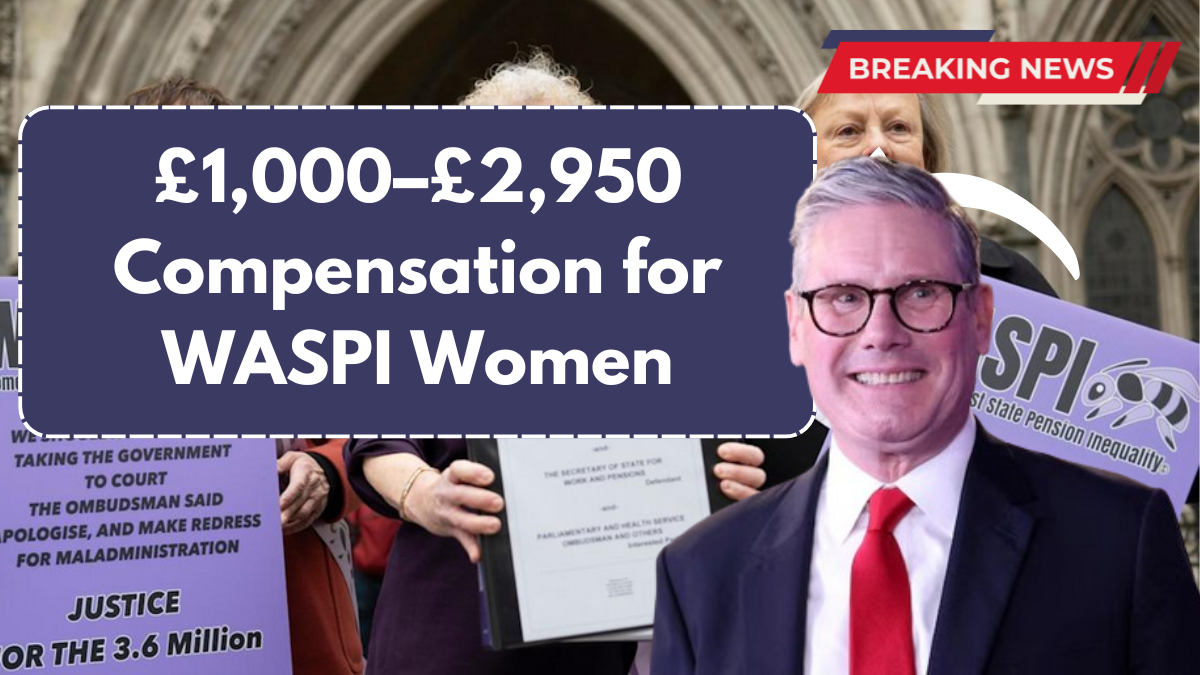The Women Against State Pension Inequality (WASPI) campaign advocates for justice for millions of women born in the 1950s who were significantly impacted by sudden and poorly communicated changes to the state pension age. These changes disrupted financial plans and retirement expectations, leaving many in difficult situations.

Key Legislative Changes That Affected Women’s Pensions
The UK government introduced pension reforms to equalize the retirement age for men and women. However, these changes were implemented with insufficient communication, causing financial difficulties for many women. The major legislative shifts included:
1995 Pensions Act
- Raised the state pension age for women from 60 to 65 to align with men’s retirement age.
2011 Pensions Act
- Accelerated the increase, setting the state pension age at 66 by 2020.
While these measures were intended to promote equality, they were implemented abruptly, leaving many women unaware of the changes until it was too late for them to make necessary financial adjustments.
Who Was Affected?
Approximately 3.8 million women, born between April 1950 and April 1960, were caught off guard by these pension reforms. Due to the lack of timely communication, many only became aware of the changes shortly before their expected retirement age. This left them with insufficient time to plan financially, resulting in significant hardship.
Ombudsman’s Findings and Compensation Recommendations
In March 2024, the Parliamentary and Health Service Ombudsman (PHSO) released a report concluding that the Department for Work and Pensions (DWP) mishandled the situation by failing to notify affected women in a timely manner. The report classified this as maladministration, leading to the following recommendations:
- Compensation Range: Suggested payouts between £1,000 and £2,950 per affected individual, depending on the extent of financial and emotional hardship.
- Estimated Compensation Costs: If every affected woman were compensated, the total cost would be between £3.5 billion and £10.5 billion.
Despite these findings, the government has refused to offer compensation, citing a 2006 survey that reportedly indicated most women were aware of the changes.
Government’s Response and Refusal to Compensate
In December 2024, the UK government reaffirmed its decision against compensating affected women. Work and Pensions Secretary Liz Kendall pointed to the 2006 survey, which suggested that 90% of women knew about the pension age changes. However, many campaigners and MPs have criticized this data, arguing that it is outdated and does not accurately reflect the experiences of those affected.
Real-Life Impact on Women
The failure to provide timely notice of pension changes has caused significant distress for many women, leading to severe consequences:
Delayed Retirement
- Many women were forced to continue working beyond their planned retirement age, often in physically demanding jobs.
Financial Hardship
- Some women had to deplete their savings, take on lower-paying jobs, or rely on state benefits to sustain themselves.
Health and Well-Being Issues
- The financial uncertainty and stress have negatively impacted both the mental and physical health of many affected women.
Summary Table of the WASPI Compensation Issue
| Aspect | Details |
|---|---|
| Legislative Changes | 1995 and 2011 Pensions Acts raised the state pension age from 60 to 65, then to 66. |
| Affected Demographic | Women born between April 1950 and April 1960 (around 3.8 million individuals). |
| Ombudsman’s Ruling | DWP found guilty of maladministration for failing to inform women properly. |
| Recommended Compensation | Between £1,000 and £2,950 per individual, based on financial loss and distress. |
| Estimated Total Compensation Cost | Between £3.5 billion and £10.5 billion. |
| Government’s Stance (as of Dec 2024) | Refuses to compensate, citing a 2006 survey. |
| Legal Action | WASPI campaigners preparing to challenge the government’s decision in court. |
| Official WASPI Website | www.waspi.co.uk |
The Ongoing Fight for Justice
The WASPI campaign continues to push for justice through various efforts, including:
- Legal Challenges: Preparing lawsuits to force the government to provide fair compensation.
- Parliamentary Advocacy: Engaging MPs to garner political support for affected women.
- Public Awareness Initiatives: Raising awareness through media, social campaigns, and protests.
Steps for Women Affected by the Pension Age Changes
If you were impacted by the WASPI pension reforms, here’s what you can do:
- Stay Informed: Keep up with updates by visiting the WASPI website and joining online discussions.
- Gather Documentation: Collect records of employment history, pension contributions, and any official communication from the DWP.
- Seek Professional Advice: Consult financial advisors to explore options for compensation or financial support.
- Contact Your MP: Write to your local MP to request their support in advocating for fair treatment.
Frequently Asked Questions (FAQs)
Q: Why was the state pension age increased for women?
A: The government aimed to equalize the pension age for men and women for fairness. However, the implementation lacked proper communication, leading to financial hardship for many women.
Q: How did affected women learn about the changes?
A: Many only found out when they were approaching retirement age, as the DWP failed to notify them in a timely manner. This was officially ruled as maladministration.
Q: What is the recommended compensation for affected women?
A: The Ombudsman suggested compensation ranging from £1,000 to £2,950, depending on the financial and emotional impact on each individual.
Q: Why is the government refusing to provide compensation?
A: The government argues that a 2006 survey indicated most women knew about the changes. However, this claim has been widely challenged by campaigners and MPs.
Q: How can affected women take action?
A: Women can support the WASPI campaign, gather relevant pension documents, consult financial advisors, and contact their local MPs to demand justice.
For more information and the latest updates,
Click here to know more.
Akesh is a furniture expert with years of experience in design and craftsmanship. Specializing in sustainable materials, he shares his expertise to help people create stylish and functional living spaces.
